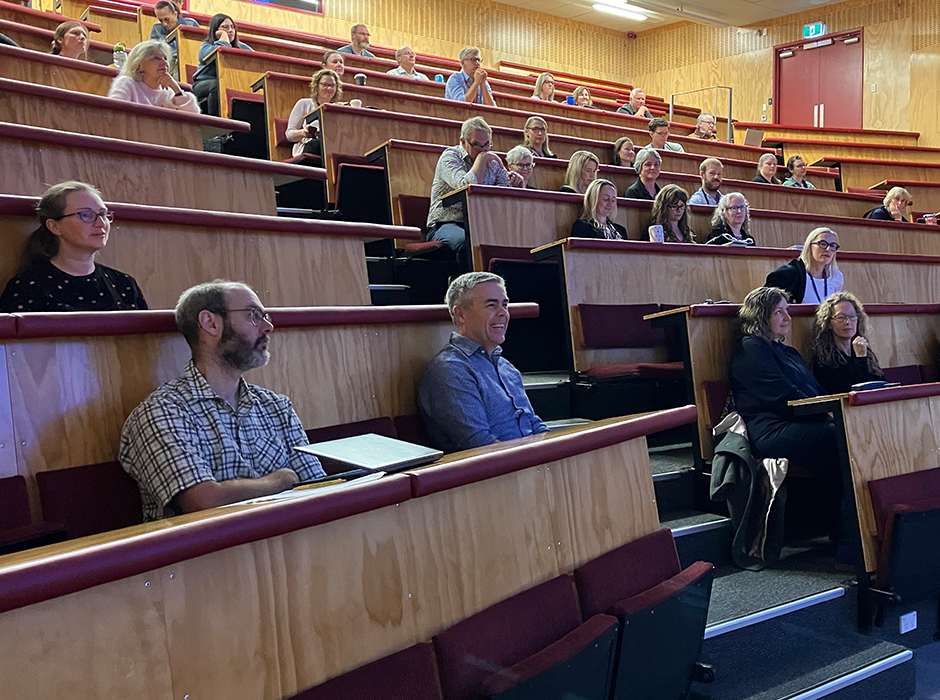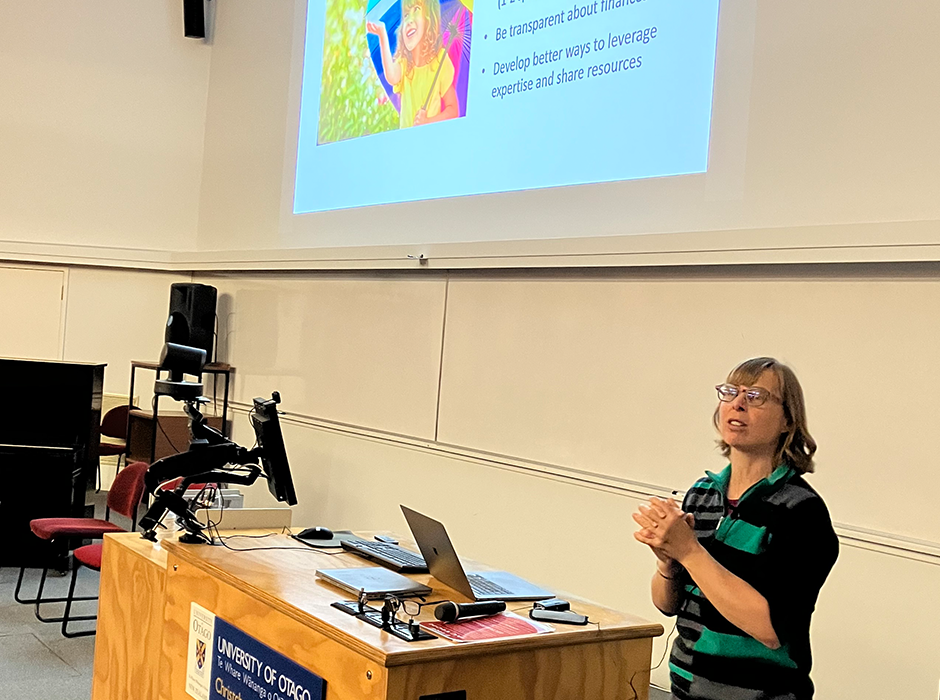
University of Otago staff take part in the inaugural Researchers Forum.
The University of Otago, Christchurch, launched a new initiative this week, aimed at showcasing the breadth and depth of research work carried out on campus.
The brainchild of the campus Research Committee, the new UOC Researchers Forum will feature the mahi of two to three different campus research departments and entities every third month.
“It’s going to help bring our campus together and allow them to share and explain their mahi with colleagues,” says Research Committee Chair and UOC’s Associate Dean Research, Associate Professor Logan Walker.
UOC has 12 research departments spread across the entire Christchurch hospital precinct and surrounding streets, with only a few housed in the main campus building itself – a situation which will be improved upon completion of the new campus building.
Associate Professor Walker says the forum is also aimed at growing the campus’s existing collaborative environment.
“That’s one of our strengths here at UOC,” he says.
“The 15-minute department updates in each presentation can be anything they themselves choose to showcase, from multiple quick fire research presentations to an overview of departmental initiatives supporting their researchers.”
This week’s inaugural forum at the Rolleston Theatre showcased the Department of Medicine, the Department of Nursing Te Tari Tapuhi, as well as the campus’s Office of Research and Enterprise.
In her presentation, Deputy Head of the Department of Medicine, Dr Anna Pilbrow explained the breadth and depth of research they carry out, stating their department “punches above its weight” with 17 different research groups or clinical research specialities included within its ranks, providing a rich diversity of work.
Dr Pilbrow says over 400 papers were published by Department of Medicine researchers last year, attracting $8 million in award and grant funding.
She invited the audience to take part in an interactive survey on their cell phones, to test how much they knew about the extent of research work they were involved with. Many were surprised to discover that Department expertise includes the likes of undertaking sheep research, Cochrane reviews, dietetics, developing new assays for drug analysis, bio-banking, gout and Parkinson’s research as well as the running of a biotech company (Upstream Technologies).

Dr Anna Pilbrow, Deputy Head of the Department of Medicine, speaking at the Forum.
Dr Mandy Wilkinson, research lead from the Department of Nursing Te Tari Tapuhi, outlined the three key strands of their department’s research focus – healthcare research with and by communities; health workforce planning and development; and health professional education research.
Nursing boasts the biggest post-graduate department on campus in terms of student numbers, thanks to its popular, intensive two-year Master of Nursing Science Course, Masters of Advanced Nursing Practice and various post-graduate courses for registered nurses. It is ranked among the world’s top 100 nursing schools.
Dr Wilkinson highlighted the large number of research links and partnerships the Department enjoys with community organisations, national and international networks, and fellow tertiary organisations, such as the Nurse Maude Foundation, Brackenridge Services, the Universities of Wollongong and NSW Sydney, and Rural Health Academic Centre in Ashburton, to name a few.
Lastly, Ian Cooke from the UOC Office of Research and Enterprise explained the work he and his team carry out, providing an update too on funding opportunities, including Horizon Europe and the ways UOC researchers can build their collaborative networks to access this funding.
Associate Professor Walker summarised the latest updates from the Ministry of Business, Innovation and Employment (MBIE) - including the pause on the Performance Based Research Fund (PBRF) and the establishment of the two new advisory groups (the Science System Advisory Group and the University Advisory Group) to advise government on how the research sector can play a greater role in lifting the country’s productivity and economic growth.
He indicated that the Research Office will be inviting UOC researchers with past successful grant application experience to offer one-on-one peer support to younger researchers with their own upcoming grant applications, “to help them put their best foot forward” in this current competitive funding environment.
The second UOC Researchers Forum will be held during winter.